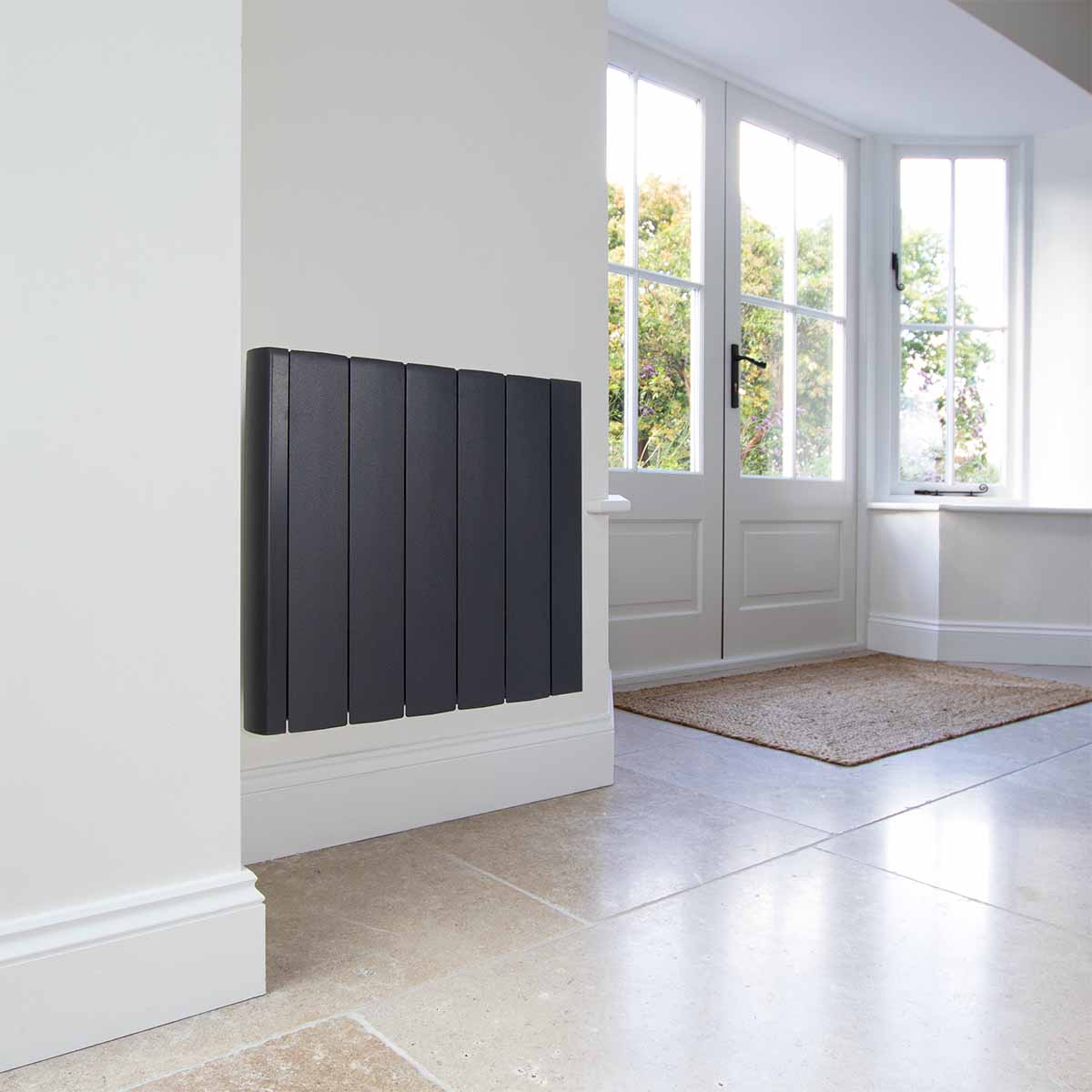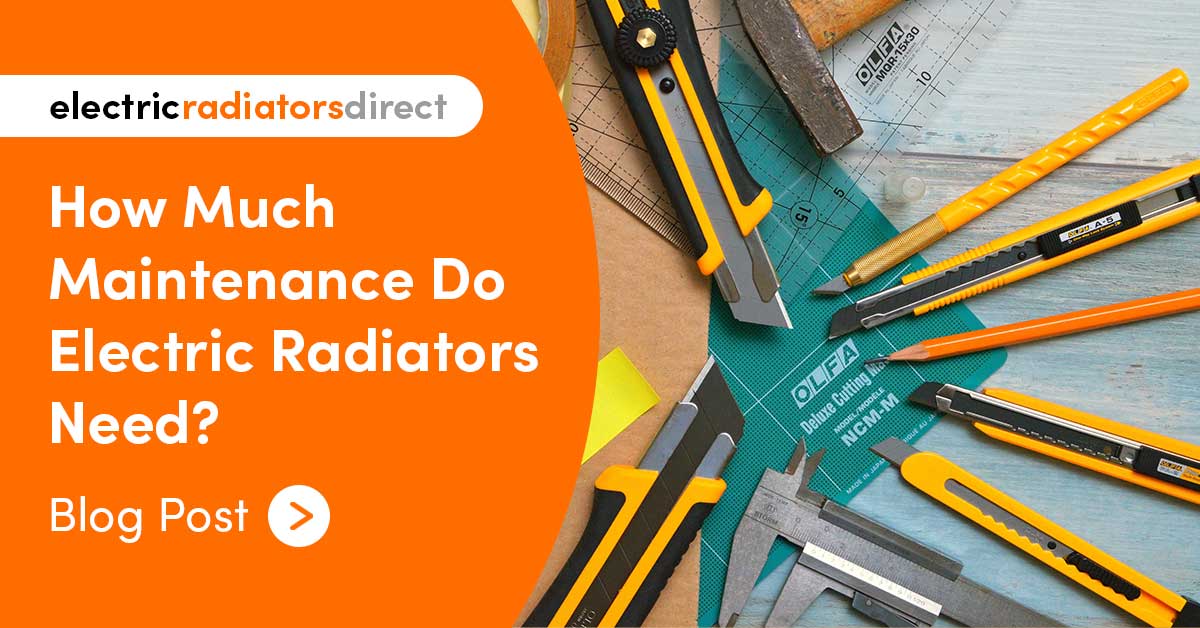

Last updated: June 2023
Many heating solutions on the market require regular maintenance. Gas central heating needs an annual servicing that costs around £80 on average and even heat pumps require a yearly check-up which can go for up to £150. This is not only costly but it’s also inconvenient and time-consuming. Electric radiators on the other hand, are completely maintenance free. With a wealth of other benefits including DIY installation, lasting warranties and superior efficiency, electric is the perfect, hassle-free heating solution.
What do we mean by maintenance?
Maintenance refers to the act of preserving something to keep it in the best possible condition. When looking at heating, this may require an entire system check or safety analysis to ensure everything is in full working order. Many heating systems need an annual professional assessment on top of more superficial maintenance such as dusting or cleaning, but that’s not necessarily the case for every type of heating solution.
What maintenance does an electric radiator require?
Zero. That’s right, electric radiators do not require any annual maintenance checks. As there’s no reliance on the combustion of fuel or a network of pipes, there’s no need for regular servicing.
In fact, the only maintenance we’d recommend is the occasional dusting to keep your electric radiator in tip-top condition – a much cheaper option when compared to other systems on the market.
How to clean an electric radiator
Like any household appliance, as time goes on you may notice your electric radiator starting to gather dust, especially during the summer months when it’s no longer needed. Not to worry though, keeping your electric radiator clean is a straightforward task that will only take up minutes of your time. Simply follow these steps:
- Switch off your radiator– sounds obvious enough, but this is a crucial step to ensure complete safety when it comes to cleaning.
- Grab your duster– get rid of any dust that has accumulated. You could even use your vacuum cleaner to make this easier.
- Wipe down – once your radiator is dust-free, give it a gentle wipe with a cloth.
Now you have a completely clean electric radiator without a penny spent. It really is as easy as it sounds, but how does it compare to the maintenance needed for other types of heating solutions?
Maintenance: comparing electric with other heating systems
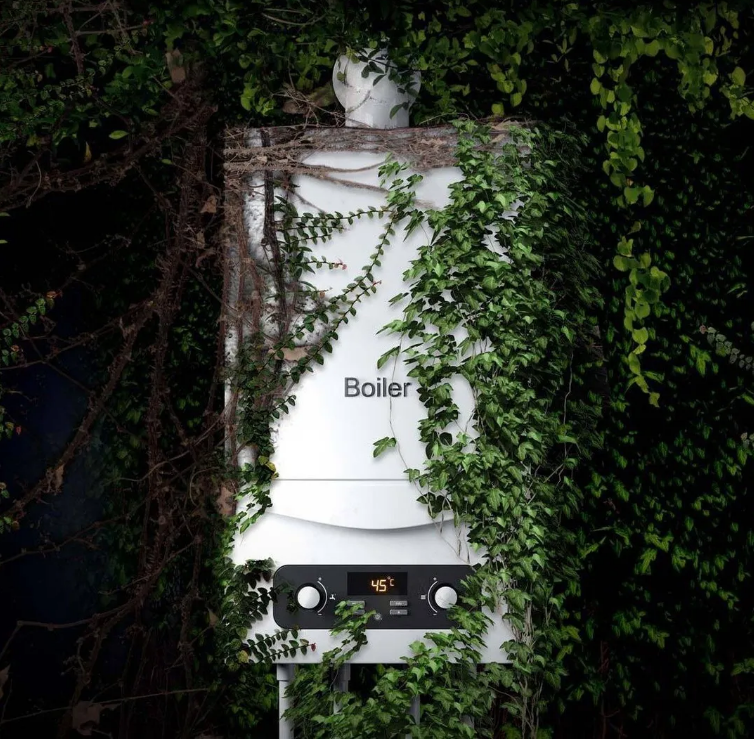

Gas central heating
Most people are accustomed to the annual servicing required for gas central heating. This means having a Gas Safe engineer come and check that your heating system is in full working order, due to the risk factors that arise should something go wrong with your boiler, including carbon monoxide leaks. By conducting a regular check, your engineer can ensure your gas central heating is completely safe – if not, replacing a boiler can cost up to £3,000 or more depending on the type of boiler and installation fees. You’d also have to consider the regular maintenance involved, such as bleeding your radiators and keeping them clean to get the best performance out of them. That’s a lot of maintenance for one heating system.
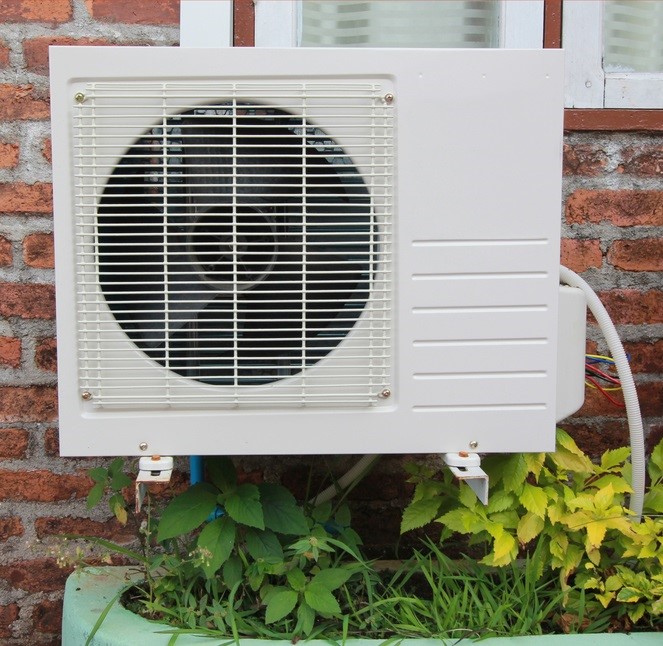

Heat pumps
Both ground source heat pumps and air source heat pumps need to be kept clean, free of obstructions and also require a regular servicing. This involves a professional evaluating the operation of your system, checking for any leaks, inspecting and cleaning filters, assessing the pipework and more. This lengthy task is not only time consuming, but also expensive as it comes with some hefty fees. Considering this is an annual requirement, costs can add up for heat pumps.
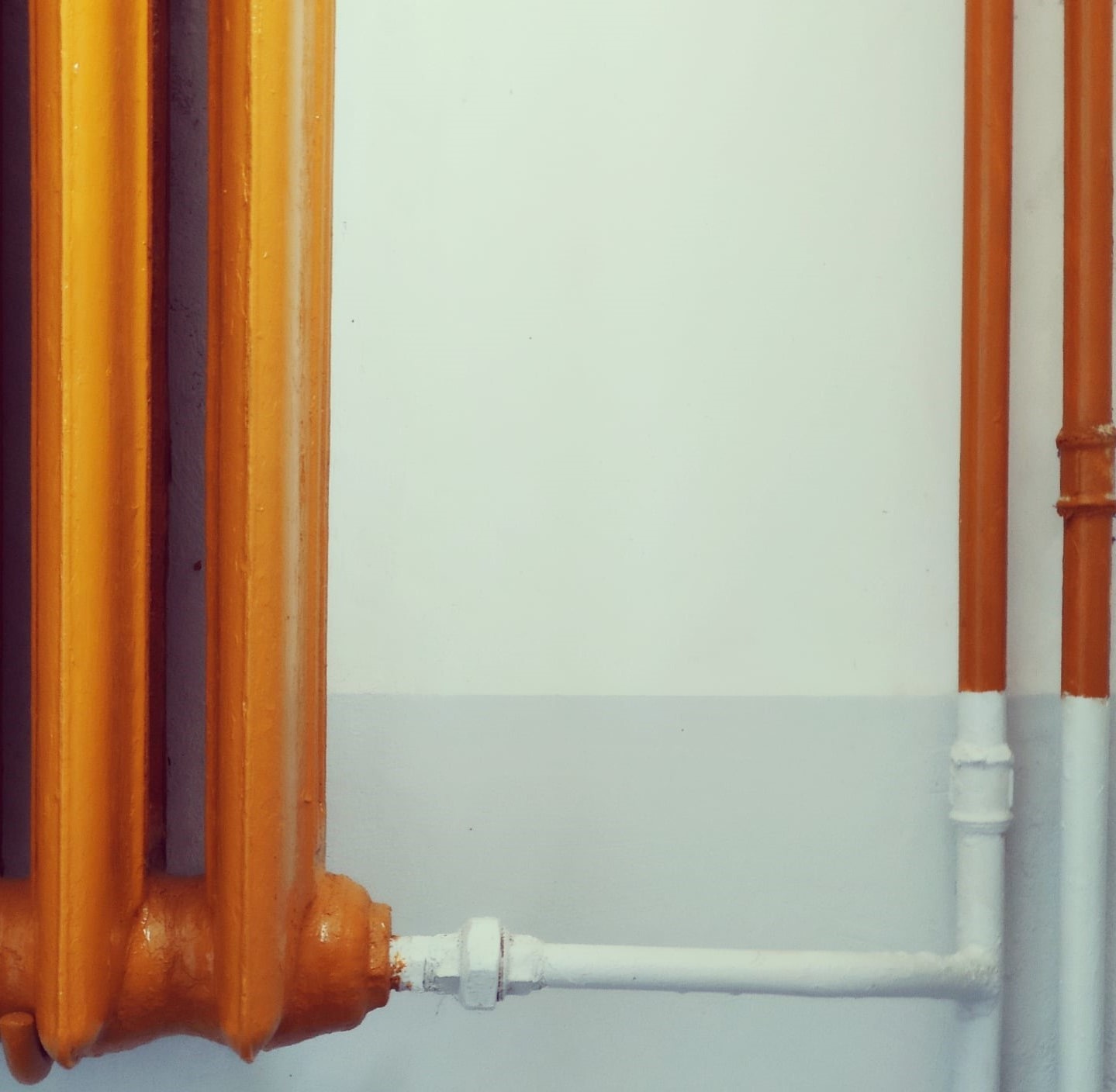

Oil boilers
Similar to gas, oil central heating uses a boiler that must be serviced every twelve months. Much of this service involves cleaning, testing safety systems and checking for leaks. This is all done to ensure the reliability of your system and to make sure it’s running as optimally as possible. Prices for this type of servicing vary but is usually on the higher end when it comes to maintenance, so you might have to save for this one. Coupled with the regular dusting and cleaning they need, maintenance is also on the heavy side for oil-based central heating.
Don’t get stuck in a rut – switching to electric frees up time usually set aside for yearly heating checks, whilst also saving you money in the long run.
| Electric | Gas | Heat Pumps | Oil | |
|
Average annual maintenance costs |
None | £80 - £100 | £70 - £150 | £75 - £180 |
How long do electric radiators last?
With minimal upkeep and no moving parts, many electric radiators can last up to 15 years or more, so you don’t have to worry about constantly replacing them. Their long warranties are a testament to their superior manufacturing, so if something does happen to go wrong, you’re covered.
In fact, one of the main benefits of electric radiators is that they work on an independent basis. Instead of acting as interconnected system, they work as standalone appliances, so if there’s a fault with one of them you don’t have to spend thousands on replacing the entire system. This is not only handy, but it also helps to keep your heating system up to date in a more affordable way.
Haverland RC Wave: Lifetime guarantee
Built to last, the RC Wave comes with a three-year manufacturer’s warranty and a lifetime guarantee on the radiator body, which means Haverland are on hand to provide replacement parts should something go awry with one of their units. This offers complete peace of mind and extends the longevity of this sophisticated electric radiator without costing you a fortune. With a 100% recyclable aluminium body and sleek curved design, the RC Wave is not only stylish and lightweight, but easy to clean as well, making it the ultimate maintenance-free electric radiator. DIY-friendly, it can be wall mounted or freestanding and comes with a range of energy-saving control features to help improve efficiency and make heating your home as convenient as possible.
With so many models on the market, deciding on the perfect electric radiator may leave you feeling spoilt for choice. Our buying guide is here to make the process as pain-free as possible, answering all those common questions in one go.
Go maintenance free with electric
There are many benefits to switching to electric, but very few other heating systems can compare to how little maintenance is required. With electric radiators, you don’t have to worry about carbon monoxide leaks or costly callout fees, making this type of heating solution more convenient and affordable in the long run. Plus, there’s something to be said for that extra peace of mind. So, if you’re looking for a heating solution with zero upkeep, you can’t go wrong with electric – browse our range today or check out our Electric Radiator Buying Guide to help narrow down your search.
Key learnings
- Electric radiators require zero maintenance, however a general dusting every so often is recommended to keep them in prime condition.
- Gas central heating, heat pumps and oil boilers all require annual servicing by a professional, which could be costly and time consuming.
- Electric radiators are built to last, easier to replace and you don't have to worry about carbon monoxide leaks, making them a convenient and safe way to heat any property.






